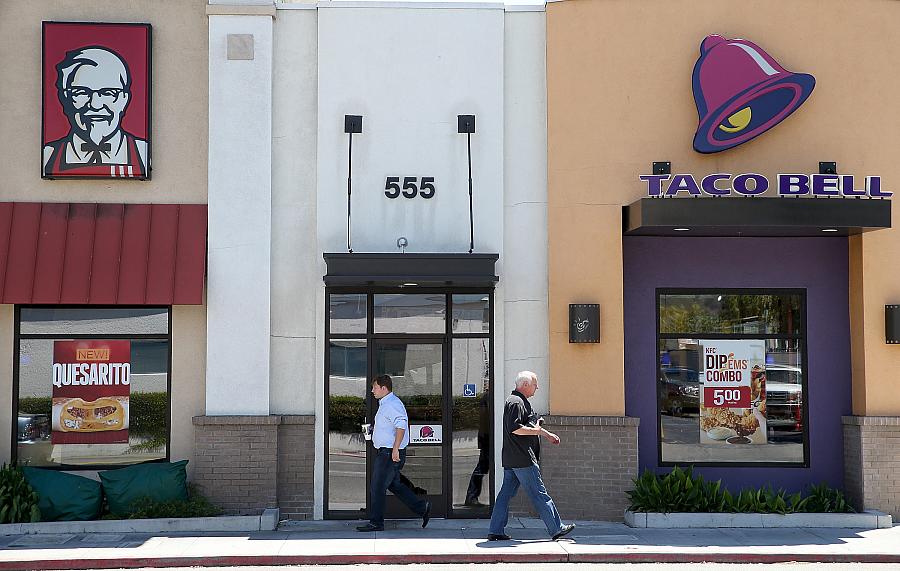Press guilty of dubious PR when it comes to novelty fast foods

Justin Sullivan/Getty Images
American fast-food companies seem determined to develop more effective ways to kill people through food, just as doctors and scientists search for ways to save lives with more effective statin drugs and better stents. Case in point: Taco Bell, anointed by a slightly cranky Washington Post food critic team as “the Michelangelo of stunt foods.” Every time the Bell or one of its competitors releases a Chicken Chalupa, Doritos Locos Taco, or Bacon-Wrapped Donut Burger, fans rush to its doors to drown their sorrows in salt (half a day’s worth in one Chalupa), chicken, and sodium acid pyrophosphate.
Why do I even know this? Because reputable news agencies take the press releases that fast-food companies send them, and play right into the behemoth chains’ hands.
That outlets like Eater cover such a stunt is a bit more understandable; their audience is younger and interested in novelty in food. But NBC, the Chicago Tribune and Fox News all ran some version of the story (thanks, Associated Press wire service).
Food section story budgets should not ordinarily be a problem, but we also have epidemic levels of obesity and high blood pressure in this country. The same news outlets that glorify triple-fried taquitos might post a story on rising heart disease rates the same day.
One can understand that readers are hungry for content, and these stories go viral, increasing ad clicks. But could PR-fueled bacon cheddar Flamin’ Hot Cheeto nachos be a form of fake news?
Reviewers have been lukewarm on the chalupa, but to me, the real news is that you can put one thousand milligrams of sodium in a food item and have a reviewer gloss over the fact. There is a story here, but it is one of produce picked before it is ready, of factory-farmed meat, and of cheap calories, all of which fast-food chains desperately try to hide with a potpourri of preservatives and salt.
Readers are starting to question such coverage as well. Several of the comments on the Washington Post’s fried chicken chalupa article dismissed the piece as “embedded advertising,” and I would have to agree.
As a doctor, I see many patients differentiating between “healthy” and “good” foods; between “diet days” and “cheat days.” An overall healthy lifestyle and positive relationship with foods in their natural state is the best recipe for avoiding obesity, diabetes, and high blood pressure. Fetishizing absurd fast foods, whether at county fairs or on street corners in fast-food restaurants, only normalizes extreme levels of salt and sugar in food and alters our taste buds to promote addiction.
From a public health perspective, I would rather NBC News cover a local basketball game or a new healthy restaurant concept with the space currently devoted to something that threatens diners’ health.

